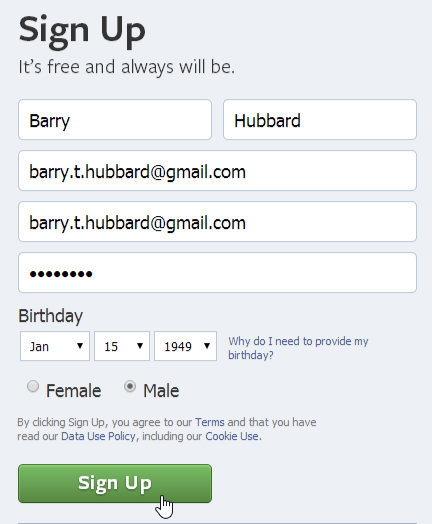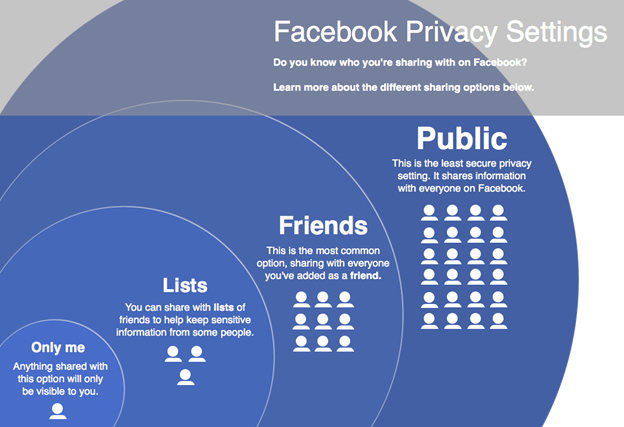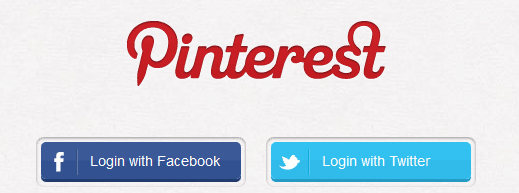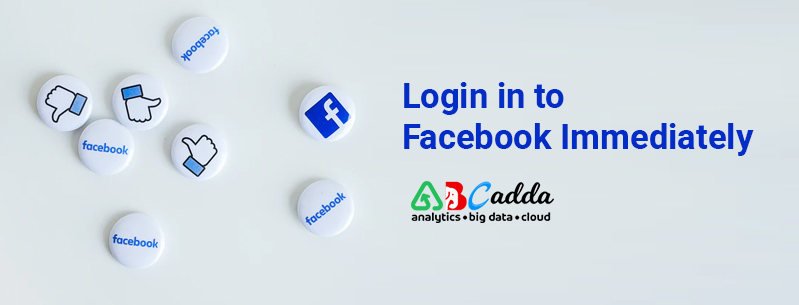Facebook is the latest in a long line of websites we know today as “social networks”. But what sets it apart from the competition is its popularity. At the last check, Facebook had more than 2.23 billion active users.
The site was founded in 2004 by Mark Zuckerberg, a Harvard hostel, and now costs billions of dollars. This is quite possibly the most renowned brand on the planet. There is even a Hollywood treatment where the film “Social Network” explores the concept of the website that was widely known in 2011. But if you’re not very up-to-date with technology, or new to the internet, as a parent or teacher, you may have a few questions.
If you’re ready to join Facebook, this tutorial will show you everything you need to get started. We’ll clarify some regular Facebook terms and how to make a Facebook account. We’ll also explore the Facebook homepage, history and Facebook for mobile devices.
What is Facebook?
Facebook is a website where users who facebook login or sign up for free accounts can connect online with friends, co-workers, or people they don’t know. Allows users to share photos, music, videos and articles, as well as their own thoughts and opinions, with the many people they like.
Consumers send “friend requests” to people they may or may not know. Access to Facebook has more than 1 billion users
Once accepted, both accounts are linked to both users who can see everything from other people. Access to Facebook users can post almost anything on their “schedule”, snippets of what’s happening in their social environment at any time, and can also chat privately with other friends who are online.
People who have profiles include information about themselves. Regardless of what they work for, where they study, how old they are, or other personal information, many users post a lot of information that is easily accessible to their friends and others. In addition, users can “like” other pages that are of interest to them. For example, Liverpool FC fans can follow the club by linking to their Facebook direct access page. There users can post comments and receive club updates, photos, etc.
How Facebook got started
Facebook started as a school social network at Harvard University in February 2004. It was created by Mark Zuckerberg along with Edward Saverin, two students. It wasn’t until 2006 that Facebook direct access opened to people 13 and over, quickly launching and overtaking MySpace as the world’s most popular social network.
Facebook’s success can be attributed to its ability to target people and businesses, and to interact with websites on the web by providing a single facebook login immediately that works across multiple websites.
Why use Facebook?
Have you ever wondered why people like to use Access to Facebook ? After all, there are already many other ways to communicate online, eg. E-mail, instant message, etc. What makes Facebook unique is its ability to connect and share with the people you care about at the same time.
For many people, a Facebook account is just as much an expected part of online use as your own email address. And because Access to Facebook is so popular, other websites have made efforts to include Facebook. This means that you can access various online services with one Facebook account.
How does sharing from Facebook work?
You can send messages and post status updates on Facebook to stay in touch with friends and family. You can also share various types of content such as photos and links. However, sharing on Facebook direct access is a little different from other types of online communication. Unlike emails or instant messages which are relatively private, the things you share on Facebook are more public, which means they are usually seen by a large number of people.
While log in to facebook offers privacy tools you can use to limit who can see the content you have shared, it’s important to understand that Facebook is more open and social than traditional communication tools. To learn more about sharing and controlling your privacy, see our Facebook privacy tutorial and how to adjust your privacy settings.
Why is Facebook so popular?
For young people growing up with technology, Facebook direct access was once the most popular website out there. However, many teens are migrating to other social networking sites such as Instagram (owned by Facebook) and Snapchat.
Those who still use it on social networks. Young people are born with a lot of responsibilities, so, like any social networking site, using Fb login to facebook is almost commonplace for many teens. Social networking sites allow young people to experiment with who they are. They are popular because teens can find their own uncontrollable voice online to share with friends. Some teens believe that it is easier for them to express themselves online than in the real world because they may think that the virtual world is safer.
Teens love log in to facebook because they can customize their profile. Just as other generations may have polished the walls of their rooms with posters of their favorite bands or football teams, young people are now engaged in personalizing their own online spaces with photos, music, videos and comments. This site also makes communication easier. Instead of picking up the phone to call a friend’s house, teens can directly communicate with their Facebook friends. Even email, another relatively new technology, doesn’t really matter to teens using Fb login to facebook to get the most out of their communications.
Why do users like Facebook
Log in to Fb is easy to use and accessible to everyone. Even the lowest technical minds can register and post on Fb login to facebook. While it started out as a way to keep in touch or connect with long-lost friends, it has quickly become a favorite of businesses that successfully attract audiences and serve live ads to people who most likely want their product or service.
Log in to Fb makes it easy to share photos, text messages, videos, status posts, and feelings on Facebook. The site is fun and a regular daily stop for many users.
Unlike some social networking sites, Fb login to facebook does not allow adult content. When users commit crimes and are reported, they are banned from the site.
The main features of Facebook
Here are a portion of the highlights that make Facebook so well known:
Facebook offers a number of personalized privacy policies that users can use to protect their information from being accessed by third parties.
- Facebook allows you to keep a list of friends and select privacy settings to adjust for displaying content on your account.
- With Facebook you can upload photos and manage photo albums to share with your friends.
- Facebook supports interactive online chat and the ability to comment on your friends’ profile pages to stay in touch, exchange information, or say hello.
- Facebook maintains group pages, fan pages, and business pages where companies can use Facebook as a marketing tool for social media.
- The Facebook developer network offers powerful features and revenue-generating options.
- You can stream live videos via Facebook Live.
- Chat with friends and family on Facebook or automatically view photos on Facebook with your Facebook portal.
Get started with Facebook
If you want to see for yourself why 2 billion monthly visitors can’t stay away from Facebook, login or sign up for a free online Facebook account, add a profile and cover photo, and find people you know about you. Create a friends list. You will be a part of the giants on social media before you know it.
Common term on Facebook
Friend? Like it? Status update? If you’re new to Facebook, there are lots of terms and phrases that can get a little confusing at first. Reviewing some of the most common terms will give you a better understanding of how Facebook login english works and what to expect to get started.

How to Create a Facebook account and facebook login immediately
Before you can use login Facebook, you need to create an account. Creating a free Facebook account. All you require to begin is an email address and a couple of moments.
How to create a login Facebook account
- Open www.facebook.com log in in your web browser.
- Enter your personal data and desired password under the words Registration and then click Register.
- You can then follow the on-screen instructions to make friends, upload a profile photo, get information about privacy settings, and much more.

Before you can access all Facebook functions, you need to confirm your email address. To do this, log into your email account, open the confirmation message from Facebook login now and click Verify Account.

Things to know about login facebook
Once you’ve created an account, you’ll want to spend some time exploring different parts of login Facebook, including the homepage and history.
Home page
The home page is displayed every time you log in to Facebook. Home displays your news feed showing what your friends are sharing on Facebook. You can also navigate to other sections of Facebook login now on the homepage, such as: about your history.

The Timeline
In the timeline (also known as profile page) you can exchange information about yourself. Every time you post an update, it will appear in your history. Your friends can also share posts about your history.

Facebook for mobile devices
Facebook makes it simple to associate in a hurry. In fact, most Facebook users access most websites from mobile devices. Facebook login now offers official mobile apps for a wide variety of smartphones and tablets, including iOS and Android.
With the mobile app, you can do almost anything you can on the desktop version of Facebook: post status updates and photos, read stories and updates, and chat with friends. We want to give you a brief overview of the two most popular versions of the Facebook app: Facebook for Android and Facebook login now for iPhone. While the user interface is a little different for these apps, you’ll find that you can access the same basic functionality with each app.
If you don’t have a smartphone, you can use the Facebook for phone program or any Facebook text to access a limited version of Facebook direct access on your phone.
Why is data protection important on Facebook?
If you choose to share something publicly on Facebook, anyone with an account can find and view your Facebook information, posts, and activity. This can compromise your privacy in a number of ways. As an example:
- You can share personal information that you want to keep private, such as: Your date of birth or your address.
- Everything you post, such as photos, comments, and status updates, will be visible to people you don’t know.
- Disturbing or uncomfortable posts can negatively impact your personal and professional reputation.
- Outsider sites and applications can access and share data from your Facebook account.
Understand basic privacy settings
Whenever you share something on Facebook, you can choose who you share it with. The infographic below shows the most common sharing options, including Just Me, List, Friends, and Publics.

Let’s see this setup in action. For example, you might choose to make all the information in your history just friends.
On the contrary, it may seem that way to someone who is not your Facebook friend. Note that most of the information is hidden, but the name, profile picture, and cover image are still visible.
Sharing and privacy
Even if you adjust your privacy settings, it’s important to understand that what you share on Facebook will be visible to many other people. This is because Facebook is designed to be more open and social than conventional communication tools.
Suppose you post a photo in a friend’s story. By default, this photo will be visible to all of your Facebook friends, not only the people you share with. The photograph will likewise be noticeable to any individual who is companions with your companion. This is one reason people enjoy using Facebook – it’s easy to share with many people at the same time.
As long as you are a little careful about what you share, Facebook does not pose a serious risk to your privacy. Before you share something on Facebook, like If, for example, you leave a comment or status update, you need to think about how well you can handle the large number of people seeing this information. If you don’t feel comfortable sharing something in public, you probably don’t want to share it on Facebook.
Facebook data protection on the web
You may not find that your Facebook account is distributed online. The Facebook platform is a tool that allows other websites to link to your Facebook account and view your public information. If you’ve seen the opportunity to log into Facebook on any other website, you’ve seen the Facebook platform in action.

When you visit a website that uses the Facebook platform, you carry all your public information on Facebook, including your name, gender, profile picture and friends list. There are three alternate ways outsider sites can incorporate your Facebook account.
Instant personalization
Instant personalization allows websites to personalize your experience when you are logged into Facebook. When a website uses instant personalization, it relies on public information from your history to predict what types of content will be of interest to you. For example, if you like reggae music on Facebook, a music website like Pandora might feature similar artists or display information about the music your friends are listening to on that website.

Social plugins
Social plugins are tools that can be used to easily share website content on Facebook. On many websites, this button is usually displayed as a small Facebook button. Social plug-ins can also show content from websites that your friends have shared.

Platform application
The application on the platform allows you to link your Facebook account to an external website. When you add an application to the platform, you can log in to that website with your Facebook username and password. Your activity on this website may also appear in your history. For example, a music sharing page might post information about music you’ve heard recently, while a news page might share information you’ve read.

You can control how other websites work with your Facebook account by changing your application settings. You can find out how to do this in our tutorial on customizing data protection.
Data protection on Facebook for minors
Facebook has different policies to protect minors. For example, children under the age of 13 are not allowed to use Facebook. Facebook also offers additional data protection for users under the age of 18. However, this protection wasn’t very strong. For example, minors appear in public search results and anyone can see their most basic information, including their name and photo.
Unless minors have a privacy policy, their other personal information – including contact information, photos and updates – can be seen by friends and friends of their friends, including people whom minors may or may not know or recognize. They don’t want to see their information.
We encourage parents to talk to their children about using Facebook safely and help them adopt appropriate privacy practices.
For the full Facebook minors Privacy Statement, visit the Facebook Parents Portal. You can find more information about Facebook’s data protection at Facebook’s data policy.
Now that you understand the basics of Facebook privacy, it is time to start using Facebook’s privacy policy. In the next lesson, you will learn how to adjust all the important privacy settings.
Facebook: With opportunities, there are risks
Despite its popularity, there are many risks for younger Facebook users. UPDATE: According to the new European Union General Data Protection Regulation (GDPR), Ireland has set the age of digital consent to be 16 years. This means that young people under the age of 16 in Ireland do not have the right to access this platform.
Here, Webwise outlines some of the main problems parents face:
- Privacy: Teens sometimes forget that what is posted on Facebook is basically a form of posting. If an account isn’t set as private, anyone can see that information. Teens often post too much personal information such as photos or phone numbers online
- Predators: While rare, there are cases of predators and other immoral individuals targeting young people on Facebook. Due to their nature, these websites are easily accessible and contain a lot of personal information
- Cyberbullying: Facebook offers perpetrators a new and fertile battlefield in which to inflict maximum damage to their targets by repeatedly using bad news and other means. There have been many stories of hijacked profiles or serious cases of cyberbullying causing suffering to victims
- Make contact: Many parents fear their young people will meet people they meet online for the first time. There are clear risks involved. Some young people take online contacts for granted, but unfortunately not all of them are real
- Content: Sometimes Facebook has content that is inappropriate for young people and annoys them. Due to the popularity of Facebook, there are many adult users and often children can be exposed to things parents don’t like.
Conclusion
In this tutorial, we show you how you can insert a Facebook login immediately button into your computer and mobile application. This eliminates the tedious task of filling out and analyzing lengthy registration forms. If you have a question about the code or want to add a conversation, feel free to leave a comment below.
